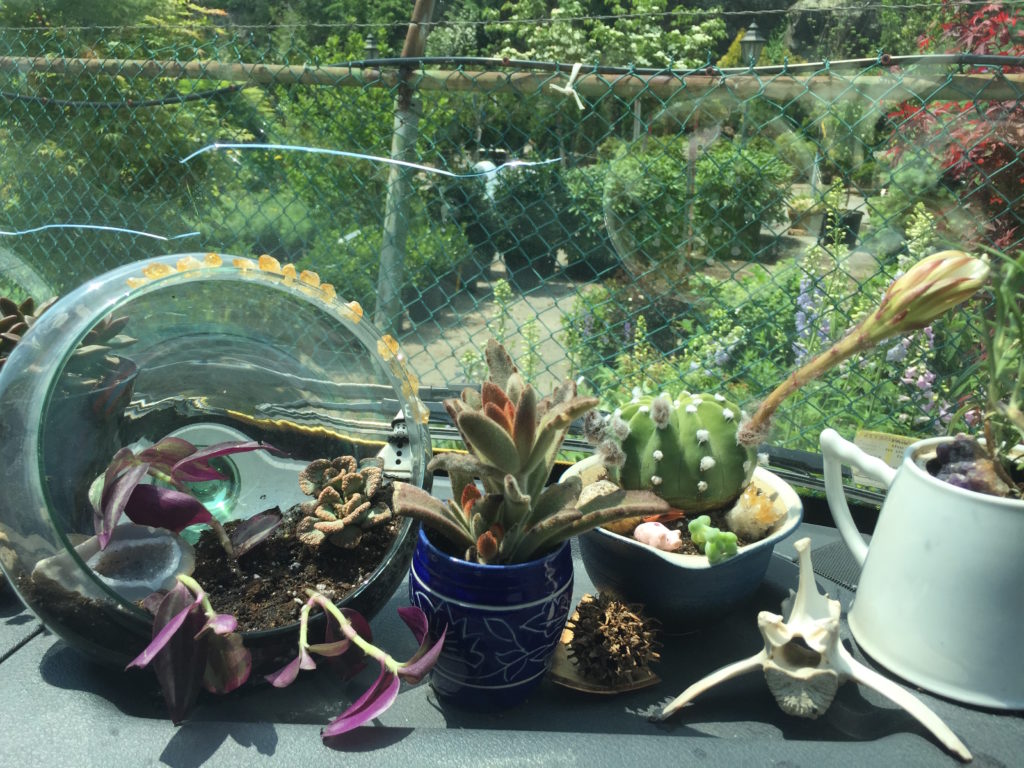
“I thought to bring my own exam gown, as the paper robes are so scratchy. I trust you’ll let me know when it is the right time to change for you…”
“Doctor, my body feels strange and tingly all over, and I’m getting headaches. I’m distracted and can’t seem to get anything done… The source of my madness seems to be the swollen button between my legs. Let me know if you need an accompanying photograph for your files. Thank you for being on call…”
“My preliminary diagnosis is one of nervosa cliterosa… a rather extreme example of female hysteria. It will take considerable effort to treat and will most likely require the insertion of a probe deep into the genitalia… You can see what the probe looks like below. I will also send a picture of other tools that I may employ.”
Who said negotiation can’t be fun? Slipping into character is not always easy, and what feels safe, flirty, and fun over text may not carry into a face to face situation effortlessly. However, role play, for all the cheese and clumsy attempts at cleverness, mixed with the desire to turn on and be turned on, is perfectly emblematic of the “adult playground” which is kink.
What are good role play ideas? Great question! Yes.
That didn’t answer my question… Well, it did though. If all parties are voting yes to a role play idea, why not move to negotiations, scene building, and try it out in a safe, sane, and consensual risk-aware manner? The entire idea behind role play is that we can make fantasies we’d like to experience come to life. Are all fantasies come to life going to prove to be great ideas in the end? No. Just like every time you have sex it’s not the greatest sex, and every day at the office is not the best day there. Don’t be afraid to critique what worked for you and what didn’t when you’re all in a headspace which allows for it. Try again if something in there really worked. Next time keep the good parts and edit out the stuff that fell flat. Add in the stuff you forgot to do or were inspired to try but hadn’t negotiated for yet… You’ll learn a lot about yourself, and potentially one another. Maybe you didn’t know you need the aesthetics of the scene to be really vibrant to get into it, or a wig is all you need to talk filthy dirty, or the feeling of being emotionally powerless was a huge turn on, or that ankle restraints are great for setting the scene — but please make sure they’re undone before fucking because you need to move your legs around to get the best angle for pleasure, or that your partner likes being tickled as long as you’re using that voice, or that you really want to be coerced and emotionally manipulated way more deeply than your partner felt comfortable doing today… Practice makes perfect. This play is yours to write, rewrite, and evolve.
Building a scene: This happens first so a successful fantasy can play out. Building a scene can happen in a lot of different ways, but it must happen beforehand, and it requires a willingness to (probably graphically) talk about sex, talk about desire, and talk about boundaries. Building the scene is a negotiation period where the participating parties figure out what the role play will look like, who plays what character, what might/will/won’t happen in the scene, who’s responsible for what actions/props/environmental controls/costume elements/”extras” casting… and as many of the details as you can figure out to feel safe and secure enough to let go while playing with one another in imagination land.
Character Development: This is an important, and often overlooked part of role play. Character development asks you to look at who your character is, what they want, and how they’re going to get it in the scene. It is entirely one thing to say “I want to do a Doctor/patient scene”, and entirely another when the patient shows up expecting a sexy pornographic gynecological exam, but ends up behind the curtain with a mad scientist Doctor wielding fists full of scalpels and needles, or a MD type who is newly researched and emphatically prepared to give an actual pelvic exam and who would never be comfortable breaking their patient’s trust… When I say “Doctor”, to which flavor of Doctor are we referring? When you say “exam”, what style of exam are we prepping for?
Set, Props, Location, Costume: You can enter role play as instantaneously and fluidly as you can change your voice. You can also spend weeks creating the perfect costume pieces, acquiring props, and revelling in the details of every moment you have planned out. Frequently our scenes fall somewhere in between. What do you want for this role play to feel fun and sexy (or dirty and evil, or exhilarating and uncomfortable, or…)? Maybe all you need are the right shoes or wig to really feel into it, maybe the prevalent image in your head for this scene is the moment someone’s naked body is draped over a furniture piece waiting for you, maybe you just want to feel a wrestling of wills until someone loses and suffers the consequences, maybe as long as “X” happens your partner can flesh out the rest of the night how they please and you’re happy to just be along for the ride, maybe you really don’t want to do this scene at home you need the fresh energy of a foreign room, or… Whatever little details you see or feel or want from a scene are things you should be up front about and plan to include. These details or events will act as triggering forces helping you appreciate the actual situation you are in.
It’s all fun and games, but what if I start feeling feelings? This totally happens. You are in a heightened state employing your psychological and intellectual endowments as well as physical, environmental, and sensual experiences. It’s easy to have your heartstrings pulled when you relax enough to buy into your imagination. To feel yourself empathize with a character, or to suddenly connect more deeply on a personal level with what’s happening in the room, to “feel” the fantasy, and sometimes be triggered by it, are all potential experiences which role play can bring on. We are no different than we were as kids who might have gotten their feelings hurt when they didn’t get what they wanted out of playing house with our friends… Our minds are powerful fuel for behavioral experiments. Know that. Think about potential triggers when you plan your scene. Play honestly with people you trust. Talk in depth about what you want and what you don’t want in a scene, and be prepared before you start. The first aid kit of fantasy role play may be filled with bandaids, toys, and prophylactics, but it should also have an agreed upon script about what to do when someone [starts crying, gets angry, seems out of it, isn’t responding “normally” within the scene, gets agitated…], and of course, safe words and agreed upon aftercare and/or after scene check-ins are important in this type of play too. It might take a little longer than normal to process experiences which are not predominantly physical in nature. Concerning healthy expectations: the more risky the fantasy content (physically, emotionally, psychologically), the more you need to prepare ahead of time, and the more trust you need to have between play partners.
“I’m stepping out of character for a minute”, is a great check-in phrase if you need a reality check, and there is no reason not to take brief time outs when anyone feels the need for one. Sometimes taking 30 seconds out of character helps alleviate a situation more efficiently than searching for a way to say what you need “in character”, or in “code” which might not be interpreted correctly by your scene partner. In that vein, I find calling out discomfort to be the easiest way to get over feelings of inadequacy, nerves, and actual discomfort. If you’re engaging in role play of some kind, chances are that you are someone (and/or with someone) who has a creative mind who wants to use it. Stumbling blocks are often a fear of getting tripped up somehow and falling ungracefully on your face, or offending or hurting someone inadvertently. Repeatedly I’ve found that the surest way to get back to the sensuality and ease with a partner I’m feeling friction around is to call out what’s happening when it isn’t working so we can both take a moment to recalibrate and decide to get back to what works. It also gives opportunity to address the friction if it’s symptomatic of a bigger issue going on between us. Adjustments don’t have to be boner killers, and when they are, well, there was probably a good reason to kill that one — rest assured boners can be built back up. “Back in character now”.
Have fun and laugh at yourself and with one another. Don’t be afraid of catharsis if it’s healthy and everyone around is prepared. Let yourself learn new tricks, let go a little deeper when you feel safe doing so, and lose yourself for a moment in play. Isn’t that why we love this playground in the first place?
Play On My Friends,
~ Creature
Please support my work on Patreon. For one time donations click here: Support the Artist
~Thank you.

